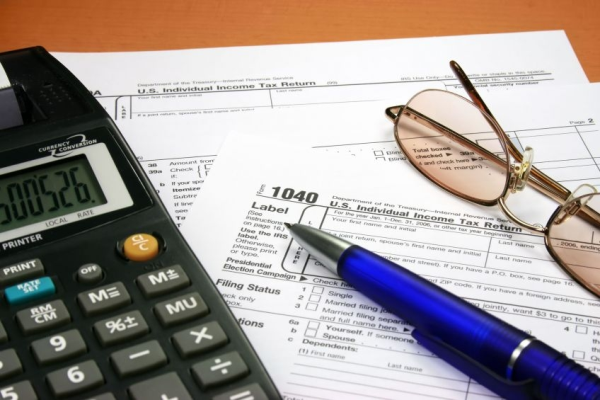With Tax Day looming, many Americans are scurrying to get their tax return filed on time. Still others, who've applied for and been granted an extension, have yet to even start the filing process. With identity theft crimes running rampant from individuals making false claims to elaborate scams involving rings of tax-preparers claiming millions in extra refunds, here's what you need to be aware of as you complete your tax returns and how you can avoid becoming a victim of a tax fraud scheme.
The 2010 tax season has already seen the biggest tax-preparer bust in US history. "Operation Brass Tax" landed 26 New York City tax preparers in Jail earlier this April for a variety of tax fraud schemes. A joint investigation by the U.S. Attorney's Office for the Southern District of New York and the IRS resulted in the arrests. The tax preparers submitted more than 35,000 suspe cted fraudulent tax returns, claiming a total of $95 million in refunds.
cted fraudulent tax returns, claiming a total of $95 million in refunds.
The accused tax preparers have been charged with using the stolen identities of children and claiming them as dependents on their client's returns. They also created fictitious businesses to claim "business losses", used stolen identities from deceased individuals to submit fraudulent refunds, and used the stolen identities of residents of Puerto Rico, who do not have to file tax returns, to claim further refunds. It appears that the tax preparers were planning to keep the extra refunds for themselves as "profit".
In another case this year, a Colorado woman was indicted for filing fraudulent tax returns for her clients. Denise Smith posed as a CPA and filed fraudulent returns on behalf of unsuspecting clients. She claimed deductions they were not eligible for and lowered taxable income, also for her own profit. Many of her victims are now being audited and may face tax fraud charges themselves.
With increasingly busy schedules, more and more Americans are hiring tax preparers. Before you put your trust and financial information in the hands of a stranger, take a moment and review these tips to protect yourself from fraud:
- Ask to see your preparer's certificates. Make sure that your chosen tax preparer is appropriately certified to file taxes. Ask them for their CPA certificate and try to verify it with the awarding institution.
- Ask for recommendations. Ask your tax preparer for recommendations from clients whose return they've prepared in the past. If they can't produce any satisfied customers, don't use them.
- Run a background check. If you are using a self-employed tax preparer, run a background check on them to review their financial and criminal history. Have they ever been convicted of a financial or other relevant crime? Have they ever filed for bankruptcy? These are important things to know about a tax preparer before you give them access to your social security number, bank records and other financial information.
- Always double check. Before your tax preparer submits your return, ask to see the completed paperwork. Double check to make sure there are no obvious discrepancies between your claims and reality. If there are, make sure your preparer fixes it or take your business elsewhere.
Bookmark/Search this post with:


 Delicious
Delicious Digg
Digg StumbleUpon
StumbleUpon Propeller
Propeller Reddit
Reddit Magnoliacom
Magnoliacom Furl
Furl Facebook
Facebook Google
Google Yahoo
Yahoo Technorati
Technorati